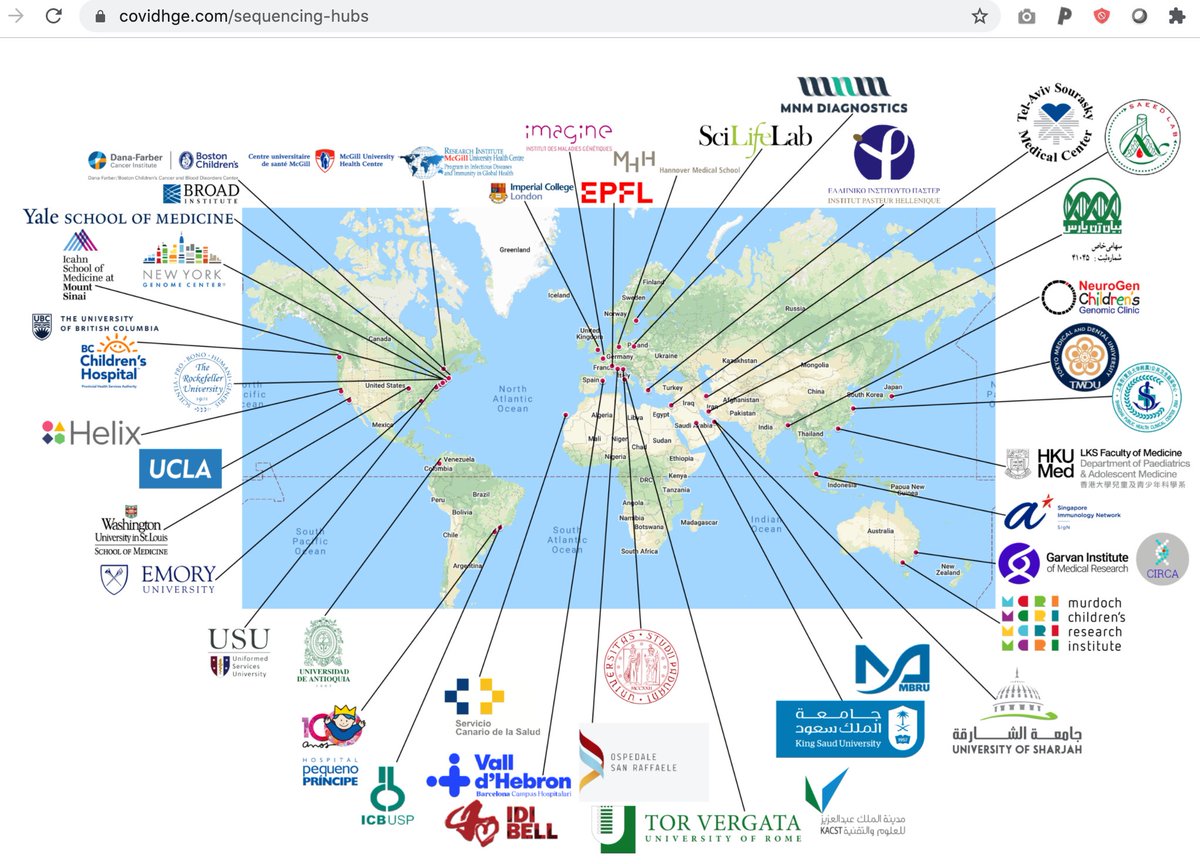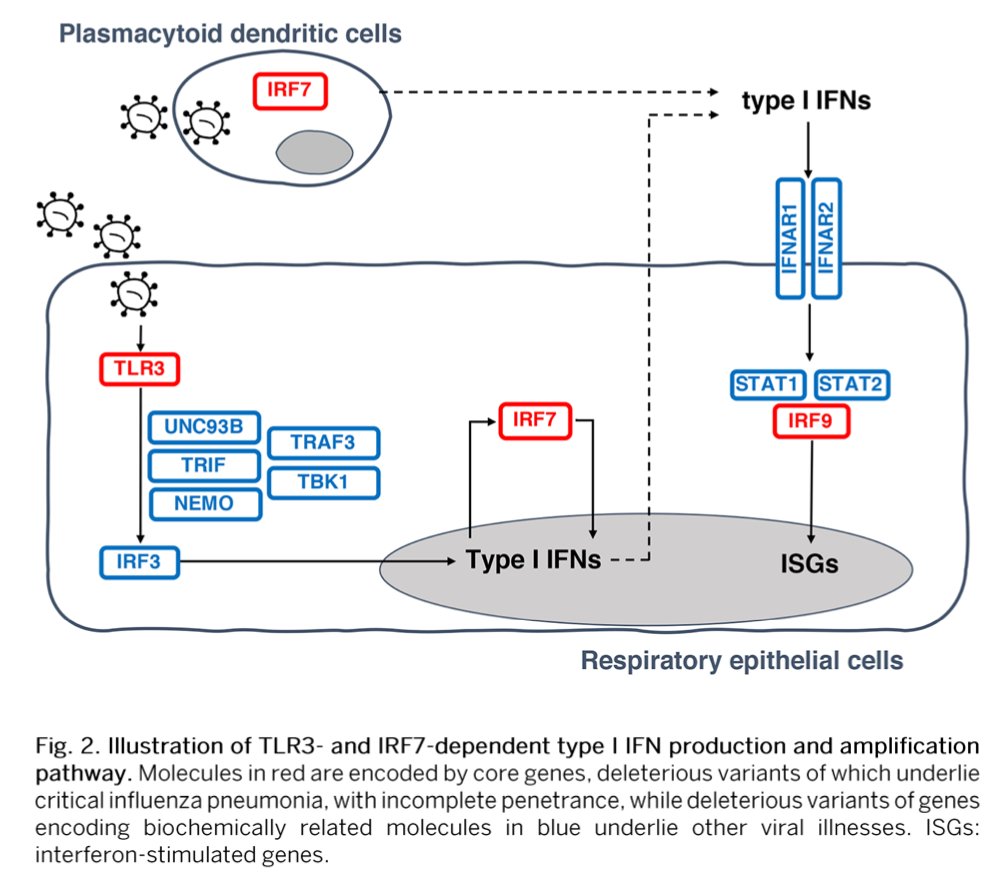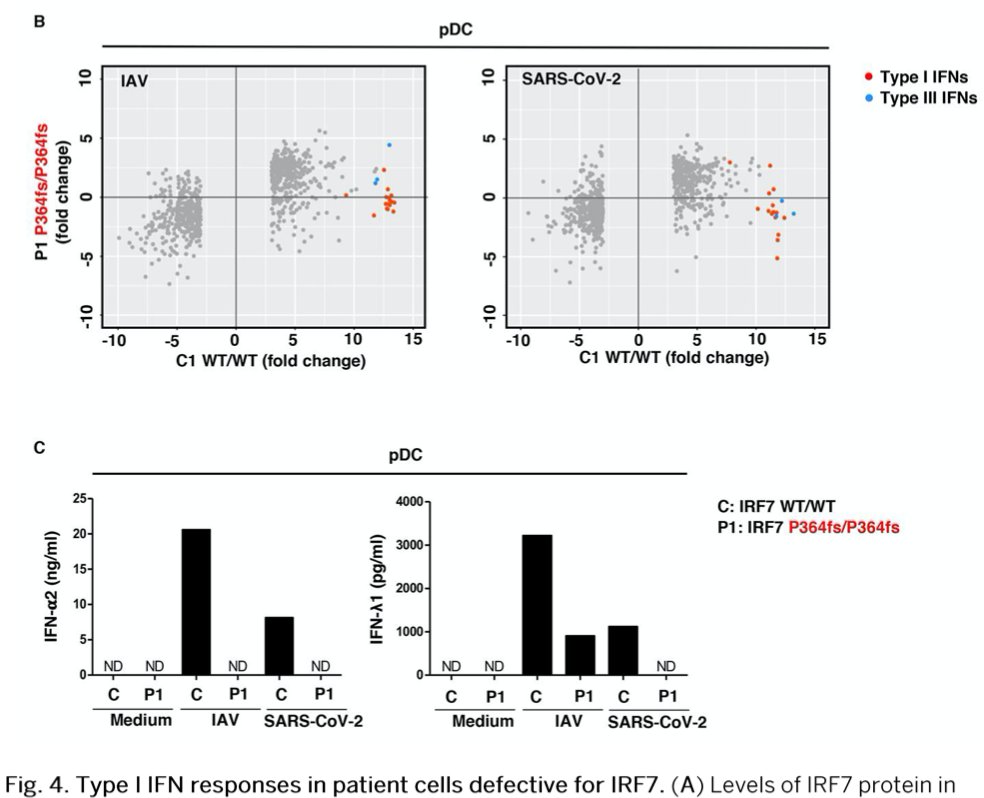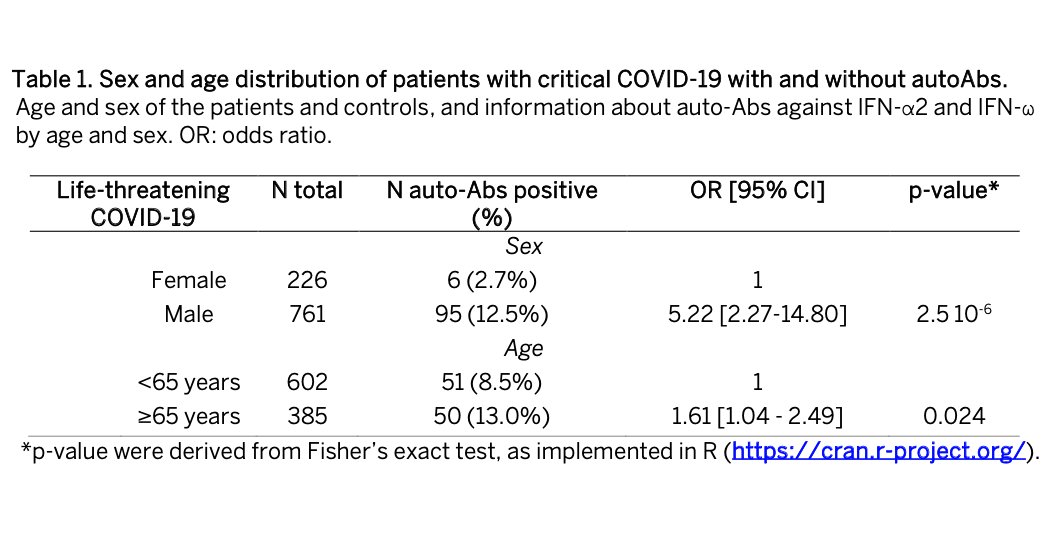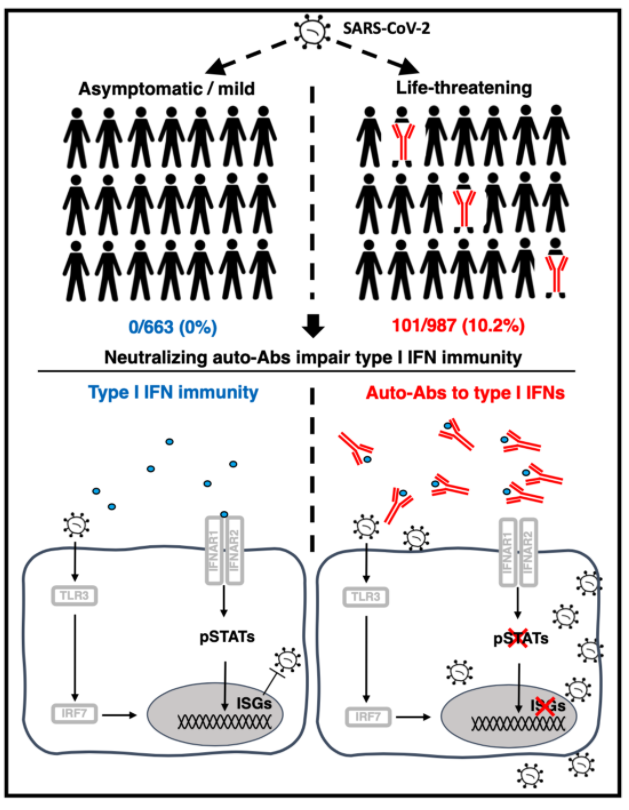1/ Thread on the first 2 papers from the COVIDhge consortium (with my small contribution).
The 2 studies show that genetic variants & auto-immunity to type 1 interferons explain 10-15% of very severe #COVID19 cases.
https://science.sciencemag.org/content/369/6511/1550">https://science.sciencemag.org/content/3...
@ScienceMagazine @casanova_lab
The 2 studies show that genetic variants & auto-immunity to type 1 interferons explain 10-15% of very severe #COVID19 cases.
https://science.sciencemag.org/content/369/6511/1550">https://science.sciencemag.org/content/3...
@ScienceMagazine @casanova_lab
2/
Key question: why some have very severe COVID-19, whereas 95% of people infected are asymptomatic, or don& #39;t need hospitalization?
risk factors:
- age
- sex
- chronic diseases, access to care...
but these don& #39;t explain all the differences
& why older, or male are risks?
Key question: why some have very severe COVID-19, whereas 95% of people infected are asymptomatic, or don& #39;t need hospitalization?
risk factors:
- age
- sex
- chronic diseases, access to care...
but these don& #39;t explain all the differences
& why older, or male are risks?
3/
Hypothesis:
genetic defects predispose some to life-threatening COVID-19
Method:
- consortium led by @casanova_lab & Helen Su ( @NIH)
- >40 sequencing hubs (incl. @my_helix) & more hospitals in all continents
- immunology & virology labs for functional assays
Hypothesis:
genetic defects predispose some to life-threatening COVID-19
Method:
- consortium led by @casanova_lab & Helen Su ( @NIH)
- >40 sequencing hubs (incl. @my_helix) & more hospitals in all continents
- immunology & virology labs for functional assays
4/
@tutu_ZQ led 1st study showing that >3% of severe COVID19 patients have inborn errors of type 1 IFN immunity.
Genes analyzed were known bc involved in severe flu infections & other severe viral responses in humans.
https://science.sciencemag.org/content/early/2020/09/25/science.abd4570">https://science.sciencemag.org/content/e...
@tutu_ZQ led 1st study showing that >3% of severe COVID19 patients have inborn errors of type 1 IFN immunity.
Genes analyzed were known bc involved in severe flu infections & other severe viral responses in humans.
https://science.sciencemag.org/content/early/2020/09/25/science.abd4570">https://science.sciencemag.org/content/e...
5/
More patients and controls need to be sequenced to have a precise estimate of the risk when having one of these variants.
OR ~ 8 compared to asymptomatic infected ctrls.
More patients and controls need to be sequenced to have a precise estimate of the risk when having one of these variants.
OR ~ 8 compared to asymptomatic infected ctrls.
6/
Variants impair innate immunity to SARS-CoV-2.
Cells from patients with AR IRF7 don& #39;t produce type 1 or type 3 IFN after SARS-CoV-2 infection and IAV (flu) infection.
Variants impair innate immunity to SARS-CoV-2.
Cells from patients with AR IRF7 don& #39;t produce type 1 or type 3 IFN after SARS-CoV-2 infection and IAV (flu) infection.
7/
P Bastard led 2nd study showing that ~10% of severe COVID-19 cases are caused by presence of auto-antibodies against type 1 IFNs.
This is an incredible discovery. https://science.sciencemag.org/content/early/2020/09/23/science.abd4585">https://science.sciencemag.org/content/e...
P Bastard led 2nd study showing that ~10% of severe COVID-19 cases are caused by presence of auto-antibodies against type 1 IFNs.
This is an incredible discovery. https://science.sciencemag.org/content/early/2020/09/23/science.abd4585">https://science.sciencemag.org/content/e...
8/
Few had hypothesized in March that autoimmunity would be major cause of severe COVID-19.
But auto-immune phenocopies of inborn errors of cytokines have been reported by same group and others in the past.
@anne_puel @KuChengLung
Few had hypothesized in March that autoimmunity would be major cause of severe COVID-19.
But auto-immune phenocopies of inborn errors of cytokines have been reported by same group and others in the past.
@anne_puel @KuChengLung
9/
101 of 987 severe cases tested had auto-antibodies to type 1 IFN.
0 of 663 asymptomatic infected controls.
4 of 1,224 population controls.
& there was a 5X increase in men compared to women.
101 of 987 severe cases tested had auto-antibodies to type 1 IFN.
0 of 663 asymptomatic infected controls.
4 of 1,224 population controls.
& there was a 5X increase in men compared to women.
10/
They also showed that these auto-antibodies can effectively neutralize IFN-a.
Overall, a great orthogonal validation of the 1st study too.
They also showed that these auto-antibodies can effectively neutralize IFN-a.
Overall, a great orthogonal validation of the 1st study too.
11/
In addition to replicating with even more patients, there are 3 big buckets for next steps:
- clinical implications & impact on trials/treatment?
- Explain the 85% without an explanation yet
- Understand cause / mechanism of auto-immunity to type 1 IFN (fascinating!)
In addition to replicating with even more patients, there are 3 big buckets for next steps:
- clinical implications & impact on trials/treatment?
- Explain the 85% without an explanation yet
- Understand cause / mechanism of auto-immunity to type 1 IFN (fascinating!)

 Read on Twitter
Read on Twitter